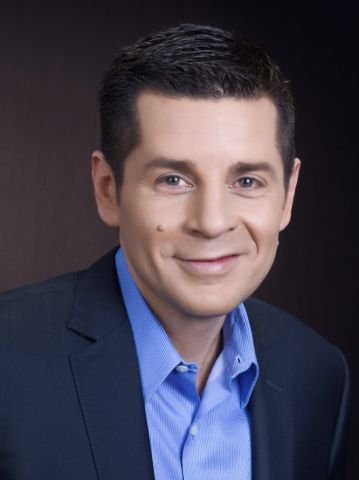When Andy Roddick played tennis, the grand slam winner and former world No. 1 never shied away from conversing, or arguing with chair umpires.
The American famously blew up at the Australian Open in 2008 in a five-set loss to Philipp Kohlschreiber, telling the crowd in Melbourne: “Stay in school, kids, or you’ll end up being a chair umpire.”
By no means was it the lone outburst of his career.
Having retired in 2012 and now watching the game as a pundit, Roddick, perhaps unsurprisingly, says there is not enough interaction between players and umpires.
His solution? Roddick would scrap Hawk-Eye or severely alter the system currently in place.
“This is completely different to what I thought as a player, but I would get rid of the challenge system,” Roddick told CNN’s Open Court on the sidelines of the charity event Mylan WTT Smash Hits in December.
“I feel like we’ve lost a lot of our personality. If someone is really having a go at the umpire, you are not going to change the channel. It’s an impossibility.
“It’s about eyeballs on TV sets,” he said.
The overwhelming majority of players currently on the tennis tour have welcomed the instant replay system, which was first introduced at a top-level tennis tournament late in 2005.
By that time, Hawk-Eye had already been used in cricket, with football’s Premier League subsequently adopting Hawk-Eye to help determine whether goals have been scored.
Roddick — a big sports fan who touches on several sports in his role for Fox Sports in the U.S. — isn’t alone in his dislike of Hawk-Eye.
Roger Federer, the 17-time grand slam champion who could be labeled a traditionalist, asked Hawk-Eye to be switched off during the 2007 Wimbledon final against arch-rival Rafael Nadal.
And two years ago in Dubai, the Swiss told reporters: “What I like without Hawk-Eye is just the players challenging the umpires more often.”
He did add, though, that he got the “point” of Hawk-Eye.
“We love our guys in the game now, Roger, Rafa and the way they carry themselves but there’s some entertainment value on the guys that don’t carry themselves so well,” Roddick said, mentioning himself, retired two-time grand slam winner Marat Safin and the man dubbed ‘Super Brat,’ John McEnroe.
“Johnny Mac is out here all the time still going nuts and people love it,” said Roddick, referring to the 55-year-old McEnroe competing in seniors’ events.
Enric Molina, a former elite umpire who was in the chair for grand slam, Davis Cup and Olympic finals, didn’t entirely disagree with Roddick.
Molina officiated before Hawk-Eye and then when it was implemented at tournaments.
“I think Hawk-Eye is a great addition to the game, because the fans love it, and at the end of the day, the players have a chance to make sure the calls are right,” Molina, the CEO and founding partner of sports management company Big Match Player, told CNN.com.
“From an umpire’s point of view, this is very satisfying because the worst feeling you have in the chair is when you think you’ve made a mistake and there’s nothing you can do about it.
“But having said that, I see where Andy is coming from. It has taken away the discussion, the element of confrontation between the players and umpires, and that may be a sad thing of course for some fans — but not necessarily for those in the chair.”
If discontinuing Hawk-Eye is too harsh, Roddick suggested limiting the number of challenges in a match to one. The challenge would remain an option so long as the player is proved right when going to the instant replay.
Currently in matches where Hawk-Eye is employed, players are allowed three incorrect challenges per set, plus one more in a tiebreak.
Another change in the game Roddick would make is keeping play going when there are lets.
For Roddick, the entertainment factor is indeed key.
“We are fooling ourselves if we don’t think sports are entertainment,” he said.
“The first goal is winning and that’s where you have a job. I am not saying we parade around and go all Hulk Hogan and enter the court in feather bows or anything, but if we play tennis with regular umpires forever and a day and it worked — it wasn’t like it was broken at all.”



